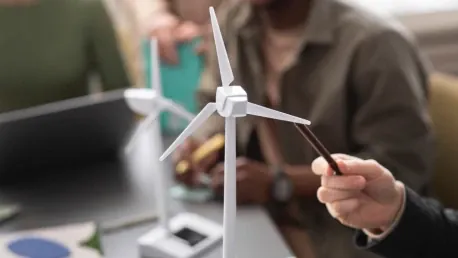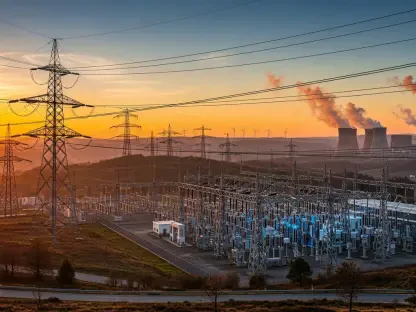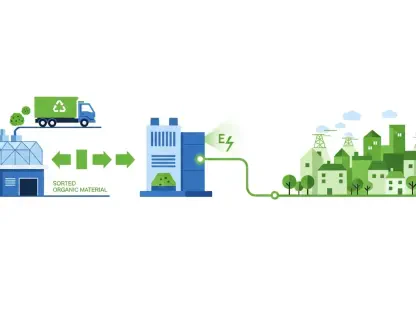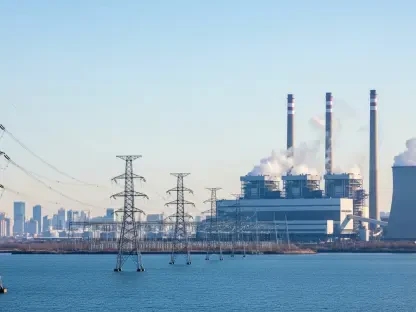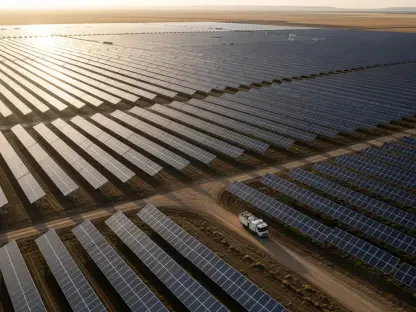Kosovo is making a significant leap towards embracing renewable energy with its first wind power auction, a groundbreaking event that has garnered attention from companies across the globe. The Ministry of Economy has announced plans to allocate up to 150 megawatts (MW) of wind capacity across two rounds of auctions. In the first round, the quota set lies between 50 MW and 100 MW, and the successful bidders are poised to secure 15-year power purchase agreements (PPAs) and contracts for difference (CfDs). This ambitious initiative underscores Kosovo’s commitment to fostering a sustainable energy environment while attracting reputable global enterprises to the table.
International and Local Companies Competing
Notus Energy and Stublla Energy Consortium
One of the main contenders in this initial auction is a consortium of Notus Energy from Germany and Stublla Energy from Kosovo. Notus Energy, known for its experience and expertise in renewable energy, brings a wealth of knowledge and technical prowess to the project. Stublla Energy represents the local contribution, marking a collaborative effort to bring forward sustainable energy solutions within the country. Their joint application underscores an ambition to blend international standards with local engagement, targeting efficient wind power generation and a transparent competitive bidding process.
This consortium merges advanced technological methods and innovative approaches to wind power, potentially setting strategies rooted in local policies and environmental considerations. By leveraging Notus Energy’s broad portfolio in constructing and managing wind farms and Stublla Energy’s understanding of local dynamics, the partnership epitomizes the collaboration between advanced international practice and local integration, creating pathways to efficient and reliable renewable energy outputs. The combined efforts of these companies could set a standard for future collaborative endeavors within Kosovo’s renewable energy markets.
French Applicant Akuo Energy
Another strong contender is Akuo Energy, a renowned French company with a proven track record in renewable energy investments and project management. Akuo Energy has distinguished itself in generating sustainable energy solutions across numerous geographical locations, adapting to local conditions while maintaining high performance standards. Their entry into the Kosovo wind power auction signifies a push to extend their footprint in Southeast Europe, contributing to the regional renewable energy mix with innovative and adaptable energy solutions.
Akuo brings with it extensive experience in renewable projects across multiple continents. The company’s strategy often includes not only constructing and operating wind farms but also focusing on environmental and social sustainability. This holistic approach seeks to maximize the benefits of renewable energy projects while ensuring minimal environmental footprint and positive community impacts. Akuo Energy’s involvement promises to inject robust technical expertise and a sustainable mindset into the competition, offering a comprehensive vision for wind power development in Kosovo. Such experienced players add a level of confidence and substantiality to the ongoing efforts to build a renewable future.
Regulatory and Technical Framework
Commitment to Fair Competition
Minister of Economy Artane Rizvanolli has underscored the importance of a fair and transparent competition process, emphasizing lessons learned from the previous solar auction. In the past, the 100 MW solar auction attracted some of the most reputable global companies, resulting in competitive bidding and favorable prices for Kosovo’s citizens. Building on that success, the ministry aims to replicate and expand these benefits by meticulously ensuring each step of the wind auction is conducted fairly, transparently, and efficiently.
The evaluation committee will play a crucial role in maintaining the integrity of this auction. Comprising representatives from the Ministry of Economy, the Ministry of Environment, Spatial Planning and Infrastructure, the Energy Regulatory Office (ERO), and the Transmission, System, and Market Operator (KOSTT), this diverse group is tasked with evaluating the financial, legal, and technical submissions from all applicants. This structured approach ensures a rigorous and unbiased review process, aligning with international best practices and fostering a competitive environment that prioritizes quality and sustainability.
Detailed Proposals and Evaluation
The Request for Proposals (RFP) is scheduled to be issued in March, a point at which participants will need to provide detailed financial and technical plans. The structure of this auction mandates that final bids be submitted in August, with a maximum price cap set at EUR 80.2 per MWh, excluding taxes. This pricing framework aims to maintain a balanced approach, ensuring the feasibility of projects while protecting economic interests. The selected bidders will then be responsible for the end-to-end lifecycle of wind park projects — from design and construction to operation, maintenance, and decommissioning.
This comprehensive process includes annual adjustments for sector-specific inflation, and financial compensation for any curtailment. Investors will only be held accountable for imbalance volumes exceeding 10%, adding a layer of security and risk mitigation to the investment. Such detailed planning and consideration ensure that the developmental impact is both economically and environmentally beneficial while encouraging sustained interest and investment from high-caliber companies globally. This also helps align all stakeholders’ interests towards a common goal of sustainable power generation.
Future Auctions and Strategic Partnerships
Upcoming Second Auction Round
The Ministry of Economy has already set sights on launching a second auction round by the end of the year. By scaling up its wind power capacity through successive rounds, Kosovo aims to continually attract high-quality investment and technological innovation. Each wind project under this program is intended to operate through a special purpose vehicle (SPV), with the government retaining up to a 49% stake. This structural setup not only fosters accountability but also aligns the interests of both public and private stakeholders towards the long-term success of these renewable energy ventures.
The strategic funding framework involves leveraging resources from the International Monetary Fund’s Resilience and Sustainability Facility (RSF). Such funds are critical in minimizing risks for private investors, making the Kosovo wind power initiative a lucrative and secure proposition. By employing strategic international financing mechanisms, the government ensures that projects are bankable and sustainable, encouraging substantial involvement from private sector players who may have otherwise been hesitant to enter nascent energy markets.
Economic and Environmental Integration
Kosovo is making a crucial stride towards adopting renewable energy by hosting its first wind power auction, an event that has attracted interest from companies around the world. The Ministry of Economy has laid out plans to distribute up to 150 megawatts (MW) of wind capacity over two auction rounds. The initial round is set to allocate between 50 MW and 100 MW, and the victorious bidders will be rewarded with 15-year power purchase agreements (PPAs) and contracts for difference (CfDs). This bold initiative highlights Kosovo’s dedication to establishing a sustainable energy landscape while also drawing reputable global firms into the mix. By embracing such an innovative approach, Kosovo aims to significantly reduce its carbon footprint and promote economic growth through renewable energy investments. This venture marks a pivotal moment in Kosovo’s journey to align with global renewable energy standards and reduce dependency on traditional energy sources.
